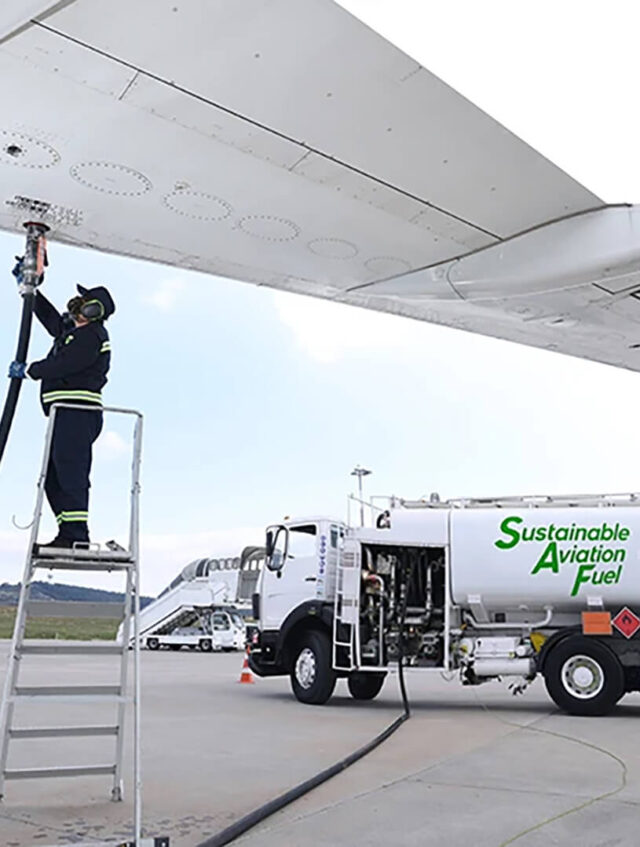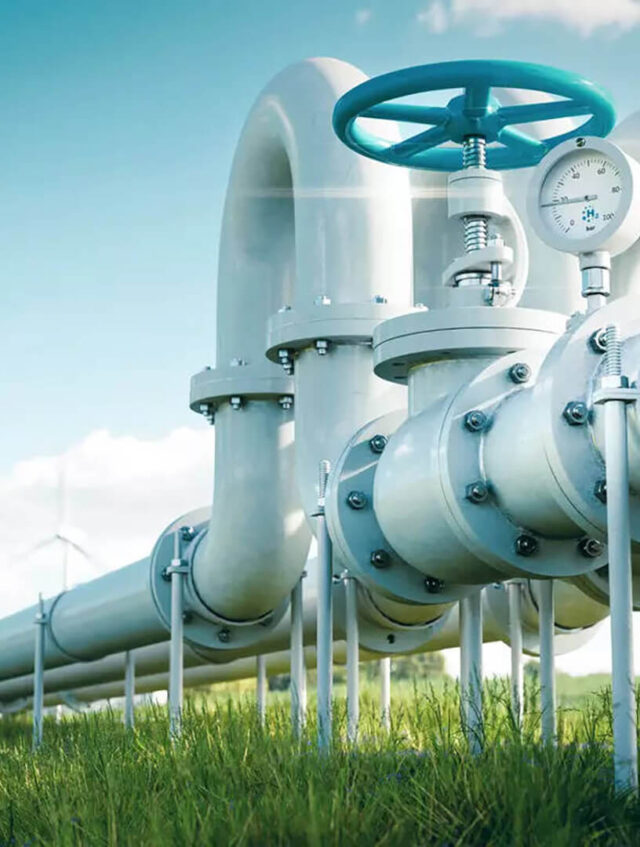Secure and Sustainable Energy Through Natural Gas
Regasification transforms liquefied natural gas (LNG) back into its gaseous state, facilitating its transport and storage in liquid form and its subsequent distribution as energy. This process contributes to a cleaner energy matrix, as natural gas produces up to 50% fewer CO₂ emissions than coal. Energy Developments, in partnership with strategic experts, embraces regasification technology as a reliable and flexible option to supply energy to various regions. This is essential for ensuring a continuous and sustainable energy supply, promoting a transition to lower-emission energy sources with significant growth potential.
- Natural gas produces up to 50% less CO₂ compared to coal and 30% less than oil, positioning it as a cleaner alternative within fossil fuels.
- The global LNG regasification capacity currently exceeds 900 million tons annually, covering approximately 25% of the world's natural gas supply.
- Projections indicate a 3% annual growth in the LNG market, driving demand for regasification infrastructure.
- Thermal efficiency in state-of-the-art terminals can reduce energy consumption in regasification by up to 20%, minimizing the carbon footprint of the process.
- During crises or energy supply disruptions, LNG regasification ensures a continuous supply, guaranteeing energy resilience for millions of homes and industries.
Regasification is an essential technology in the natural gas supply chain, a cleaner source of energy than other fossil fuels. The process begins with liquefied natural gas (LNG), which is transported in its liquid state, significantly reducing its volume, making it easier to handle and allowing it to be transported over long distances. Upon arrival at its destination, the LNG is regasified, transforming it back into gas for distribution and use as energy. Energy Developments works with strategic partners and employs cutting-edge technologies to make this process increasingly efficient and less polluting, thus contributing to energy security and global sustainability.
Natural gas plays an essential role in the transition to a cleaner energy matrix, producing up to 50% less CO₂ emissions than coal and around 30% less than oil. Currently, LNG regasification is responsible for more than 25% of the world's natural gas supply, with an installed capacity of more than 900 million tons per year. This process makes natural gas available even in countries without their own production, diversifying their energy sources and decreasing their dependence on more polluting alternatives.
From an environmental perspective, the regasification process has been optimized in recent years thanks to low-emission technologies. Advanced heat recovery and thermal efficiency systems are in place to minimize energy consumption during regasification, thereby reducing the carbon footprint associated with the process. In addition, state-of-the-art regasification terminals are designed to minimize the release of methane, a potent greenhouse gas, which contributes to making the process greener and more environmentally friendly. Energy Developments is committed to such innovative and sustainable solutions, in line with its commitment to minimize environmental impact and promote a clean and safe energy supply.
Regasification also has a positive social impact. It represents a reliable source of energy for multiple regions and ensures that communities and industrial sectors have access to a continuous and secure supply, which is fundamental for economic and social development. With this infrastructure, Energy Developments is able to bring energy to remote areas and industries that depend on natural gas for their operation, generating employment and promoting balanced economic development.
In the Colombian context, a regasification project represents a strategic opportunity to strengthen the country's energy security. With a high and growing energy demand,
regasification allows supplying the domestic market with a reliable, flexible and low-emission energy source. This is especially relevant in Colombia, where climate change and natural phenomena can affect access to other energy sources. Regasification, then, offers an option that contributes to reducing dependence on more vulnerable sources, promoting a more robust energy matrix that is prepared to face climate challenges. Energy Developments works hand in hand with its strategic allies for the development ofregasification projects, aware of their importance in the transition to cleaner energy and in the creation of a safe and resilient energy system. The company designs these infrastructures with high safety standards and advanced technology, guaranteeing a continuous and reliable supply even in situations of crisis or interruptions.
With a projected 3% annual growth in the LNG market, regasification will continue to play a vital role in reducing global emissions and strengthening energy security. Energy Developments prides itself on optimizing every phase of this process, contributing to a clean and resilient energy transition, where natural gas plays a strategic role in sustainability and progress towards a greener and more balanced energy future.






